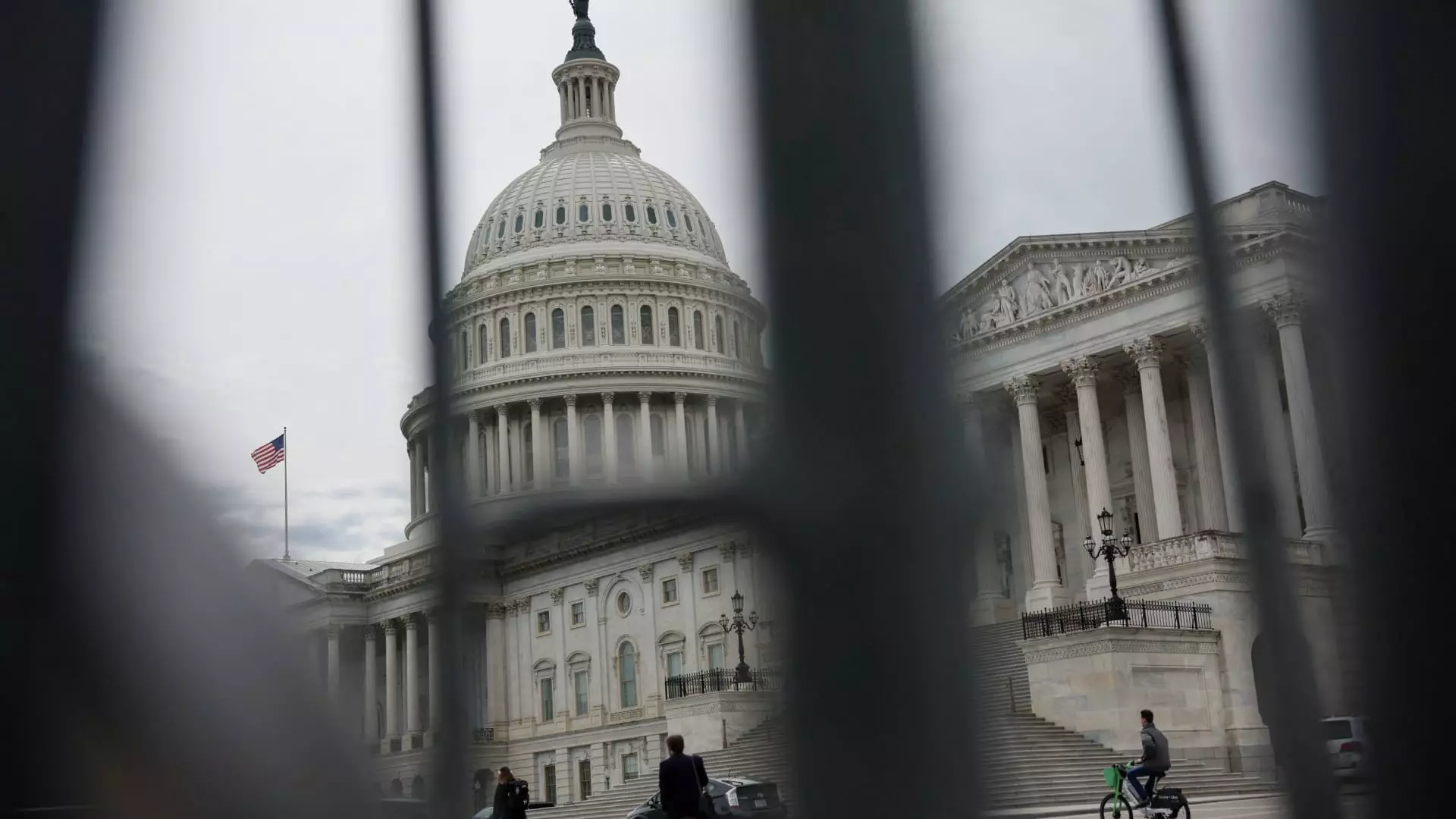In a political maneuver reminiscent of tightrope walking, Senate Republicans have recently passed a budget plan that promises to extend the tax cuts enacted during Donald Trump’s presidency. However, the real implications of this budget are steeped in controversy and fraught with potential disaster. Advocates of the plan, led by Senate Budget Committee Chairman Lindsey Graham, assert that failing to continue these tax cuts would impose devastating burdens on average American families. Yet, the arithmetic suggests a daunting reality: a non-partisan analysis predicts this budget could swell national debt by approximately $5.7 trillion over the next decade. How can a plan that potentially deepens the nation’s debt be branded as fiscally responsible? The cognitive dissonance is palpable.
This budget sets the stage for a bizarre political theater where Republicans claim responsibility for restraint while preparing to add more zeros to the national ledger. The doublethink at play here raises important questions about the motivations behind these decisions, not least when it comes to the future of essential programs like Medicaid. The institutionalized contradiction of slashing taxes for the wealthiest while imposing austerity on safety nets for the lower and middle classes doesn’t just erode public trust; it deepens the already yawning chasm of inequality in American society.
A Tax Cut for the Wealthy at the Expense of the Vulnerable
The outcry from Democratic leaders, including Senator Chuck Schumer, regarding this budget is more than just partisan posturing. It is a moral indictment of a system that prioritizes tax cuts for the ultra-rich while targeting the poor. By spearheading this initiative, Republicans are not merely gambling with numbers; they are playing with lives. With the proposed cuts to Medicaid, crucial health services for low-income Americans hang in the balance. This issue encapsulates the broader reckless approach to governance—one that often sacrifices the most vulnerable for the perceived benefit of those who are already secure financially.
The Republicans’ justification—that they can offset the future costs of these tax cuts by streamlining Medicaid—reveals a troubling faith in market efficiency over human compassion. It’s akin to suggesting that we can save lives by simply making healthcare less accessible. This is not only absurd but dangerous. In a country where socio-economic disparities are stark, adding layers of bureaucracy under the guise of “efficiency” threatens to obliterate access for millions of children who rely on these services.
The Economic Consequences: A Ticking Time Bomb
While the Senate debates these sweeping changes, the repercussions of such decisions extend beyond the numbers reflected in budgetary spreadsheets. These tax cuts are not merely financial transactions; they represent a philosophical choice about what kind of society we aspire to be. As trade tensions escalate and economic forecasts turn increasingly pessimistic, the market has already begun to respond negatively. Anxiety over potential tariffs has propelled waves of volatility, leaving average Americans uncertain about their financial futures.
Yet, amid the turmoil, Republican senators are emboldened by the prospect of navigating this budget through the filibuster-proof reconciliation process. How is it that the heavy lifting of budgetary governance is being placed solely on the shoulders of the minority party? The public seems to expect a collaborative effort—an approach that encompasses the diverse tapestry of American opinion—rather than a unilateral imposition of policy crafted without bipartisan support. The rhetoric of claiming to represent average Americans while excluding their voices from critical debates exposes an unsettling truth: the average voter is merely a pawn in this high-stakes game of political chess.
The Dangers of Remaining Silent
As the House prepares to debate these sweeping changes, the urgency of engaging critically and vocally cannot be understated. The potential ramifications of this budget will resonate for generations—especially if cuts to safety nets become a reality. What message does it send to the average citizen when their government prioritizes the financial well-being of corporations over the health and livelihood of struggling families? The ongoing dialogue around this budget must forcefully remind those in power that legislation affects real lives and that the people are not an abstract concept but a collective of individuals who will ultimately shoulder the consequences of these decisions.
This budget proposal may masquerade as a necessary economic strategy, yet its effects promise to exacerbate the inequalities that already plague our society. By pushing through these measures without meaningful consideration for their full implications, Republicans not only risk alienating voters but also jeopardizing the very stability of the nation they claim to serve. In this crucial moment, it is time to speak out against the radical policies that jeopardize the welfare of our most vulnerable citizens. The budget is not just a fiscal document; it is a moral compass that points toward the heart of American values.


Leave a Reply